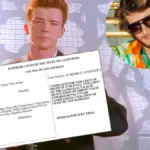The currently-unidentified students are accused of uploading copyrighted exam questions to Course Hero in order to cheat during tests.
What’s the cost of cheating on a college exam nowadays? Failing the class? Expulsion? Bringing shame and disgrace on your family name for generations to come?
How about being liable to your professor for willful copyright infringement damages of up to $300,000?
Oh? Have I got your attention now?
The Lawsuit: Berkovitz v. Does 1-5
Several students from Chapman University in Orange County California (currently identified only as John Does 1-5) are finding themselves on the receiving end of a copyright infringement lawsuit filed by Assistant Professor David A. Berkovitz of Chapman’s Argyros School of Business and Economics.

To be clear, Berkovitz’s lawsuit is certainly an unorthodox approach to addressing what most agree is a major problem on college campuses nowadays, especially during the pandemic, when many classes and exams have been conducted remotely. In fact, I don’t know if it’s ever been done before, but I wasn’t quite motivated enough to do the research to find out.
What I do know, however, especially coming from a professor teaching at a school of economics, is that Berkovitz’s approach isn’t one that’s particularly economical.
Copyright owners aren’t allowed to bring federal court lawsuits until their copyrights have actually been registered with the U.S. Copyright Office. As a result, Berkovitz incurred an additional $1,600 fee to have two of his exams registered on an expedited basis. That’s on top of the standard application fees charged by the Copyright Office, as well as the court costs and legal fees associated with filing his complaint (read here).
The exams at issue are Berkovitz’s “Business 215 Section 5 Spring 2021 Second Midterm” as well as the Spring 2021 Final Exam for the same class. The lawsuit alleges that Berkovitz distributed the Midterm Exam to his class on April 21, 2021 and the final on May 21, 2021.
In January 2022, Berkovitz says he first discovered that parts of his Midterm and Final Exams were posted on the website Course Hero. The complaint refers to Course Hero as an “education focused document sharing website.” Some critics consider it a not-so-lowkey cheating service.
To be sure, the site can be used for sharing study guides and class notes (material in which a university or professor would typically have no copyright interest). But Course Hero, along with its much larger competitor Chegg, are also used by students who regularly post questions, answers and even full-blown essays, which are then downloaded and copied wholesale by fellow students.

Exam Questions and Copyright
Note that the straight-up essay-copying kind of plagiarism for which these sites are often used isn’t a problem that can be addressed by the type of copyright infringement lawsuit filed by Berkovitz here. Unless a student were to copy a sample answer written by the professor (which would really call into question how that student ever got into college in the first place), the copyrights in the test answers would be owned by the students who first wrote them.
Berkovitz, on the other hand, is suing over the unlawful reproduction and distribution of test questions which he wrote. As Berkovitz had no work-for-hire or other arrangement giving Chapman University ownership rights in this material, he retained the copyrights.
As an initial matter, one can imagine any number of exam questions that wouldn’t qualify for copyright protection (“What’s 3 + 1?” immediately comes to mind for any first-graders out there using Course Hero.) But Berkovitz’s exam questions typically consisted of fairly detailed fact patterns in connection with his class in (wait for it) Business Law. Here’s an example:

The question isn’t exactly the Great American Novel. The underlying ideas conveyed in the question certainly aren’t protected, and students who wanted to “seek help” from the Course Hero community and not be sued for copyright infringement could probably rewrite the question in a way that wouldn’t violate Berkovitz’s copyrights.
This is because Berkovitz’s questions are likely only entitled to what we copyright lawyers often call “thin” copyright protection, which prevents only the identical or nearly-identical reproduction of another’s work.
But it’s that sort of identical copying—and distribution—which is exactly what Berkovitz claims that the defendant students were engaged in here. This is notwithstanding the notice Berkovitz placed at the top of his tests to the effect that students were “prohibited from copying any part of the exam.”
Ignoring that instruction, the complaint alleges that the students in the Chapman Business 215 class uploaded the exam questions to Course Hero, whereupon they were answered by other users on the site. It’s unclear at this point whether or not the students actually turned in any of the supplied answers as their own. Perhaps multiple students even turned in the identical canned answers. Resolution of these issues might not affect the copyright claims presented by the case, but I have a feeling they would impact any discipline the affected students could face from Chapman University.
Is Course Hero Liable?
When you read Berkovitz’s complaint, you’ll see that he only names the students as defendants, not Course Hero. This is almost certainly because Course Hero would be protected by the safe harbor provisions of the Digital Millennium Copyright Act (DMCA), which typically shields websites that act to expeditiously remove infringing user-uploaded content after receiving a takedown notice from the copyright owner. It’s actually unclear whether Berkovitz sent takedown notices to Course Hero at all, given that several Business 215 exam questions still appear on the site at the time I’m writing this post.
But the fact that Course Hero hasn’t been sued doesn’t mean that it doesn’t have an important role to play in this little saga. Once the discovery period opens, Berkovitz’s next step is to serve a third party subpoena on the site in order to learn the names, IP addresses and other identifying information tied to the students who allegedly uploaded his exam questions to Course Hero in the first place. If Berkovitz is able to identify and serve the students, they’ll become defendants in the lawsuit, with their real names replacing the current “Doe” placeholders.

What About Remedies?
The Prayer for Relief at the end of Berkovitz’s complaint reads like a pretty typical copyright infringement lawsuit. He asks for a permanent injunction, an order of impoundment with respect to any devices containing his copyrighted works, as well as an award of actual damages and profits.
Berkovitz also asks for an award of statutory damages for willful copyright infringement, which can reach $150,000 per infringed work on the high end. That’s up to $300,000 for both exams assuming that the same student infringed both tests.
But this is where I think Berkovitz is going to run into a problem. According to his copyright applications, Berkovitz published his copyrighted works on April 21, 2021 and May 21, 2021, respectively, which are the days he distributed his midterm and final exam questions. But even his expedited copyright applications weren’t effectively registered until February 2022. Under section 412 of the Copyright Act, statutory damages aren’t available if the alleged infringement began after the work was first published and before the effective date of its registration, unless the registration was made during a three month “grace period” that isn’t applicable here.
The same is true for the attorney’s fees Berkovitz is seeking. Without a timely-filed registration, a plaintiff can’t recover fees from the defendants even if he prevails. Which means that unless Berkovitz’s attorney Marc Hankin happens to be handling the case on a pro bono basis, Berkovitz will have to foot his own bill. (Full Disclosure: I know Marc and spoke to him today to discuss public aspects of the lawsuit, but I don’t know how he’s being compensated. I’m sure he wouldn’t have told me even if I had asked. Which I wouldn’t. So I didn’t.)
Even actual damages and profits, which Berkovitz may be entitled to receive upon prevailing, are up in the air. What money (besides fees and costs) did the professor lose? What profits did the students gain? My sense is that monetary damages would be incredibly difficult, if not impossible, to prove in a case like this.
The Bottom Line
This brings us to the real goal of the lawsuit, as expensive and inefficient as it may be, which, according to Hankin, is to uncover the identities of the students who allegedly cheated so they can be disciplined in whatever manner Chapman University deems appropriate. But to be clear, this isn’t just discipline for its own sake. Rather, it’s to protect Berkovitz’s other (non-cheating) students. Apparently Chapman University classes are graded on a curve, which means that any student who doesn’t cheat may be getting a grade that’s lowered by the cheaters who are receiving grades they don’t deserve.
Given the economics, it’s certainly not a strategy that’s likely to be replicated on a massive scale. But win, lose or draw, I have a feeling that the mere filing of this lawsuit is going to cause future students of Professor Berkovitz to study at least a little bit harder than they might otherwise have. Either that, or they’ll avoid his class like the plague.
As always, I’d love to know what you think. Shoot me a note in the comments section or on one of the Copyright Lately social media accounts @copyrightlately. Meanwhile, a copy of the new complaint is below:
View Fullscreen







7 comments
Aaron, You and I do know one another, fairly well, for quite some time. I need to add to your article to point out that Professor Berkovitz’s main motivation here is to protect his other students — the overwhelming majority who did not cheat on the exams — because their grades are being lowered by the cheaters whose essays are earning higher grades than they deserve. Because the Chapman University classes are graded on a curve, when the cheaters artificially inflate the grades they actually should have earned, they are artificially lowering the grades of their friends and classmates. Many of those other students are on financial aid, and many of those scholarships are tied to earning a certain grade point average. While the moral/ethical issues are important, it is more important to Professor Berkovitz that his hardworking students who did nothing wrong not suffer because of the bad acts of one or more students who chose to cheat instead of study harder. And, because you raise the issue of whether students will continue to sign up for his classes, Professor Berkovitz is a well respected Business Law Professor who gets high marks on Rate My Professor, etc. Thank you, Marc
Thanks Marc. If you read my site regularly (and you do, don’t you? 〠) you know I like to make lame jokes. I don’t know Professor Berkovitz. But I have no doubt that any professor who is willing to file a copyright lawsuit that (notwithstanding my breathless intro), is clearly not going to finance his retirement, *must* be motivated by something other than monetary damages. And you raise very important points about the cost of cheating on those who don’t cheat. I will say that it seems a bit unfortunate that the professor has to take action on this issue as a “lone wolf,” apparently without the University’s official backing. I’ll be watching this one closely, and I’m really glad you took the time to comment.
Best,
Aaron
Aaron — I’m a huge fan of yours and a regular reader of your site.
As a copyright lawyer for a large university system and as someone who regularly advises faculty members on copyright issues involving Course Hero and Chegg, I have a great deal of interest in this lawsuit and have tried to read as much as I can about it — including the complaint, your excellent blog entry, articles from WaPo and NYT on this matter, etc.
One thing that seems to be missing from the discourse — and it’s also question for you (or even Mr. Hankin, if he’s still monitoring these comments) — is why didn’t Hankin/Berkovitz avail themselves of the subpoena rights under Section 512(h) of the Copyright Act. As you know, Section 512(h) permits the copyright owner (or the owner’s authorized agent) to obtain, as a matter of right, an unmasking subpoena after sending a Section 512(c)(3) takedown notice. No lawsuit is necessary for the Section 512(h) subpoena to be issued.
In various sources that I’ve read, and as you succinctly stated: “the real goal of the lawsuit, as expensive and inefficient as it may be, which, according to Hankin, is to uncover the identities of the students who allegedly cheated so they can be disciplined in whatever manner Chapman University deems appropriate. ” If uncovering the student(s)’ identities is the real goal — which I certainly believe is the case (as opposed to obtaining damages) — wouldn’t it been far less expensive and far more efficient to pursue the subpoena mechanism in Section 512(h)? But perhaps I’m missing something….
Thanks for considering this question. Angus
Angus – thanks so much for your support of the site! As a regular reader, I’d love to know if you have any suggestions for article topics. Re the 512(h) subpoena — I don’t have any inside information on whether this is something Professor Berkovitz thought about doing or not. If I had to guess though (and this is just me speculating), he’s probably is in fact looking for more information that just the identities of the students who uploaded the material. For example, I don’t think 512(h) would allow him to determine *when* the students uploaded the exam questions – i.e., before or after the test — which could be relevant to the cheating. I also don’t think it would allow him to determine the identities of anyone who provided the answers to the questions, in order to determine whether they were also in the class. Finally, I think it would be good for the cheating inquiry to determine whether the students actually turned in any of the supplied answers as their own. As Mark Jaffe at TorMark Law pointed out on Twitter (@markjkings), this all starts to look a lot more like the plaintiff invoking copyright law for reasons that really aren’t about copyright. As an expert in this area yourself, I’d like to get your take Angus.
Well one advantage of a 512(h) is he wouldn’t have to rush registration of the copyrights, right? Also wouldn’t be filling a federal lawsuit, so that’s about $2000 saved.
More on my point about using copyright law for non-copyright purposes: the motivation doesn’t necessarily have to be nefarious. Its purpose can be something that seems noble and good. But not a copyright purpose. And I think that should be addressed as a factor in a lawsuit like this.
I appreciate your creativity and the effort you put into every post. Keep up the great work!